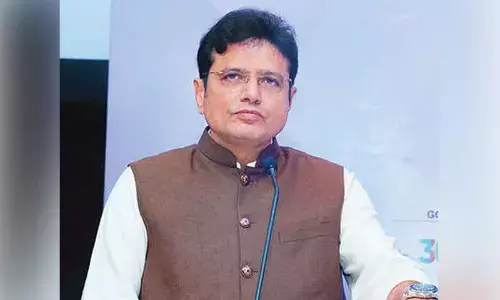Inclusive learning and critical thinking

By fostering an inclusive approach to education, students are not only equipped with critical thinking skills but also learn to appreciate and respect diverse perspectives. This prepares them to become empathetic and effective leaders who can navigate complex challenges in the future.
With each passing year, Indian schools are witnessing an increase in students from all sectors. Traditionally, students have been victims of discrimination based on race, caste, gender, disability, the language they speak, their societal status, and many more.
However, since we entered the modern era, there has been a shift towards promoting inclusivity and diversity in education. This is where schools have recognized the importance of an inclusive environment and have taken plenty of steps for all scholars. They have implemented policies that prohibit any form of discrimination and encourage equal opportunities for learning. By embracing diversity, schools are not only providing a fair chance to every student but also preparing them to thrive in a multicultural society, regardless of their background.
In an era where competition is very arduous, being a successful student in 2023 and beyond is far different from being one in the past. And as the world keeps facing various uncertainties, particularly as a result of Covid-19, younger generations and the education systems they are a part of have become more dynamic. Thus, to foster inclusivity, schools are placing a greater emphasis on critical thinking skills.
In today's rapidly changing world, it is no longer enough for students to simply memorize facts and regurgitate information. They certainly need the ability to analyze, evaluate, and apply knowledge in a bid to navigate complex issues and solve real-world problems.
Therefore, by focusing on critical thinking skills, schools are preparing students to be adaptable and innovative thinkers who can thrive in diverse and challenging environments. This not only enhances their academic success but also qualifies them with the necessary skills to become active and engaged citizens in an increasingly globalized society. According to UNICEF, inclusive education is the most effective way to give all children a fair chance to go to school, learn, and develop the skills they need to thrive.
Inclusive education: An approach to providing equal opportunity
The goal of inclusion in any field is to uphold the intrinsic worth of every person. In addition, it promotes everyone's active engagement in society, notwithstanding their individual physical or mental attributes. Similarly, inclusive education focuses on finding the most effective strategies to meet each student's unique set of learning demands.
Its foundation is the straightforward notion that all children and youth have an inherent right to be included in a general education classroom and to be afforded equal chances and experiences. Thus, there is no denying the fact that inclusive education is not just a concept; it is a powerful approach that aims to provide equal opportunities for all students, regardless of their ability, nationality, and background.
Today, this method goes beyond the classroom and includes critical thinking as a valuable ability for all students, but particularly for those who wish to comprehend and value inclusion and diversity in teaching and learning. In educational contexts, diversity and inclusion refer to acknowledging and respecting other identities, viewpoints, and experiences. When it comes to diversity and inclusion concerns, critical thinking assists students in refuting presumptions, looking closely at evidence, analyzing arguments, and communicating clearly.
Furthermore, inclusive education fosters empathy, respect, and tolerance among students, preparing them to thrive in a diverse society. Thus, it goes beyond just academic achievement; it focuses on the holistic development of the learner, both academically and emotionally. So, let's delve into the pivotal roles of teachers and guardians in promoting inclusivity and the vital role of critical thinking in making schools more inviting and inclusive.
Role of teachers and guardians: student success
Create a safe classroom environment
Children in a classroom are like colorful threads, and instructors are the weavers who weave them into a beautiful jacket that shields them from all kinds of difficulties. In this sense, setting up a secure and friendly learning environment in the classroom is the first step toward inclusive learning. It is the duty of educators to create an environment in which each child feels safe and appreciated. For every student to succeed, educators must address issues of bullying, prejudice, and cultural awareness.
Know every student’s unique need
In India, inclusive education acknowledges the individuality of each student despite the wide range of origins from which they originate. Therefore, in order to foster inclusivity, educators need to make an effort to comprehend the unique strengths, weaknesses, and learning preferences of every student. This is particularly relevant in a nation such as India, with its diverse languages, cultures, and skills. In reality, by helping teachers gain important information about their children, parents also play a significant role so that they can modify their methods to suit everyone’s unique demands.
Encourage open-mindedness
Students of today may comprehend that bullying might happen when someone speaks in an aggressive or harsh manner. Still, children may have trouble distinguishing exclusion from bullying. Here's where educators and parents can support students and kids by fostering empathy and an open mind. Parents should inquire about their children's mood, behavior, and general well-being on a daily basis. This point of view will encourage inclusive classroom practices and assist children in developing more profound empathy.
Support academic and social-emotional development
Teachers are crucial to fostering the intellectual and social-emotional development of their students. They cater to the academic needs of learners with varying ability levels and provide the appropriate kind of support. In light of this, parents and guardians also foster their children's social and emotional growth by promoting emotional intelligence and effective communication at home.
Cultivate critical thinking
In today’s modern era, cultivating critical thinking abilities is a crucial part of creating inclusive learning settings. In order to help pupils develop critical thinking skills, teachers and guardians must actively encourage them to challenge presumptions, examine the facts, and form original ideas. Teachers and parents can support kids in developing the skills they need to handle complicated topics and participate in inclusive debates by fostering an environment in the classroom or at home that honors varied viewpoints and promotes open communication. Furthermore, facilitating group problem-solving and decision-making can strengthen critical thinking abilities and advance inclusivity.
Importance of critical thinking in encouraging inclusivity
Encourage students to ask questions
According to NCBI, younger kids (10–12 years old) and teenagers (12–14 years old) showed improved memory for answers to trivia questions they were interested in as opposed to answers to questions they weren't. Thus, by encouraging students to ask questions, educators can create opportunities for critical thinking and open dialogue, allowing students to challenge their own assumptions and biases. Additionally, this approach promotes inclusivity by ensuring that all voices are heard and considered in the learning process.
Enhance creativity and curiosity
It is not an overstatement to say that critical thinking allows individuals to think outside the box and explore different perspectives, fostering creativity and curiosity. It encourages learners to question assumptions and seek alternative solutions, promoting a more inclusive learning environment. Additionally, critical thinking helps students develop empathy and understanding toward diverse viewpoints, leading to a more inclusive and equitable classroom.
Boost career prospects
Critical thinking skills are highly valued in the professional world, as they enable individuals to analyze complex problems, make informed decisions, and adapt to changing circumstances. By fostering critical thinking in education from an early age, students can become better at navigating diverse workplaces and contributing to inclusive environments. Additionally, employers often seek candidates who can think critically and consider multiple perspectives, making it a valuable skill for career advancement.
Inclusive approach: Promises a better future!
In today’s modern era, teachers and guardians have emerged as a secret to creating inclusive learning environments in India.
It guarantees that every student has the chance to achieve, benefit from one another's knowledge, and make a positive contribution to a more tolerant and peaceful community. With this strategy, there is hope for a better future where diversity is valued and everyone has an equal opportunity to succeed. Thus, by fostering an inclusive approach to education, students are not only equipped with critical thinking skills but also learn to appreciate and respect diverse perspectives. This prepares them to become empathetic and effective leaders who can navigate complex challenges in the future.
(The author is MD, Birla Open Minds)








